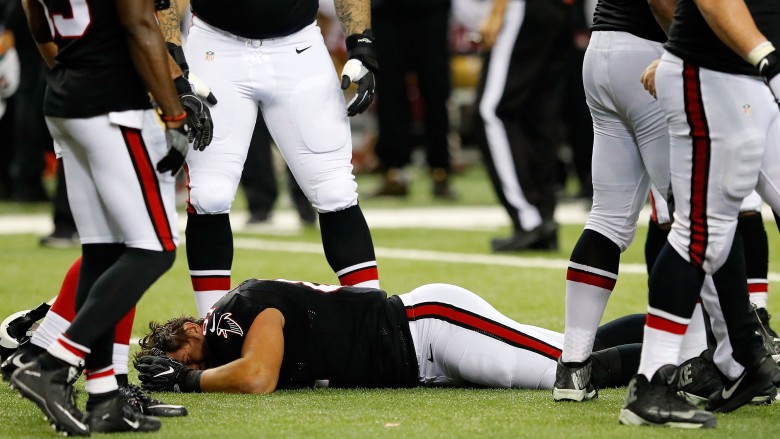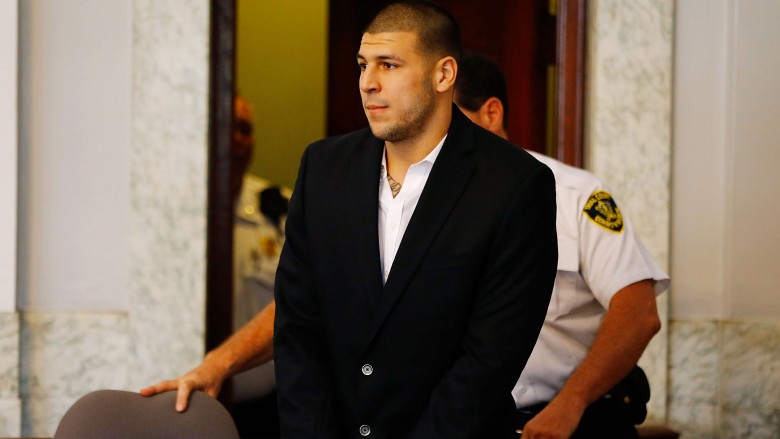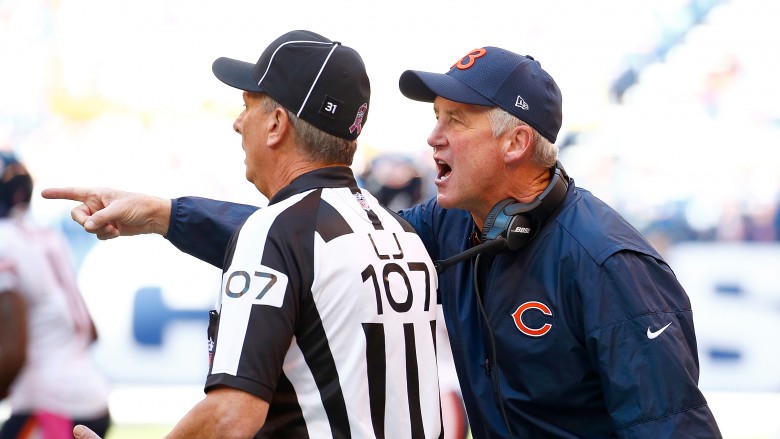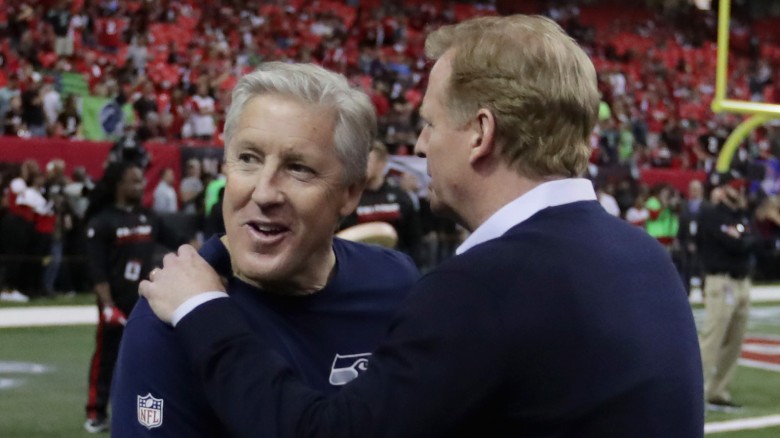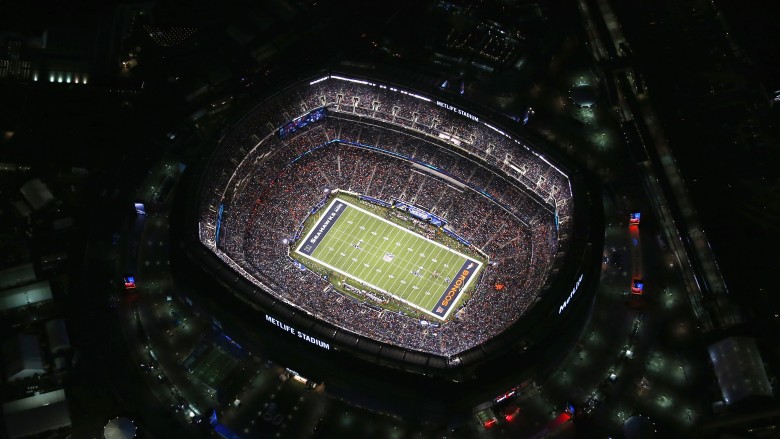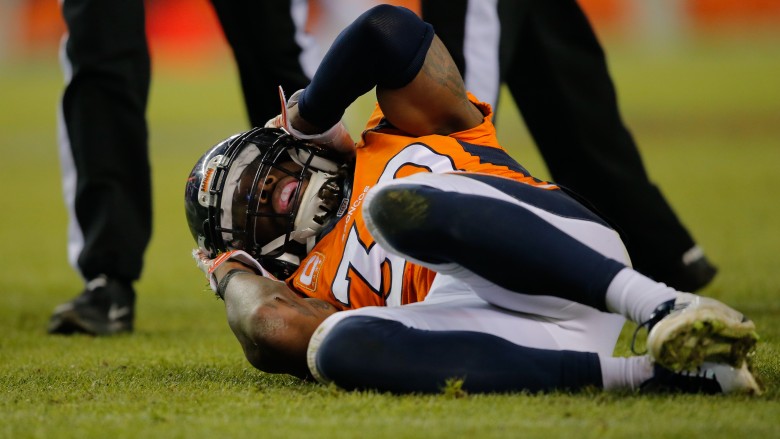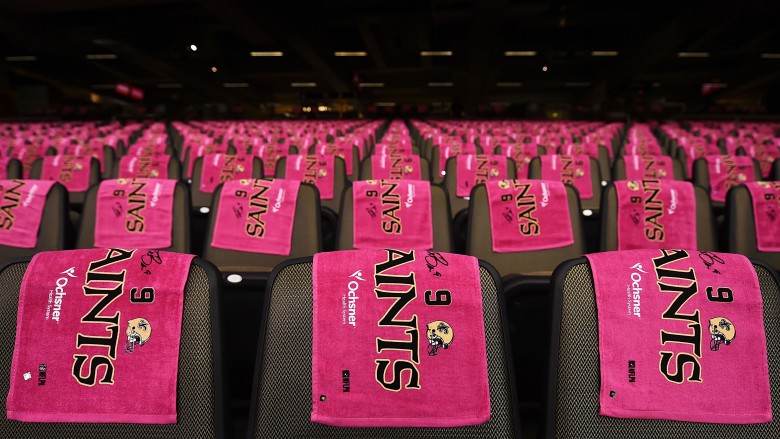Secrets The NFL Doesn't Want You To Know
Football's been a cornerstone of America for as long as we can remember, and it would be nigh impossible to imagine these United States without it. But we'd like to imagine football without the NFL, which has proven itself to be less a bastion of gridiron glory and more a corrupt, incompetent, petty and sometimes evil organization straight out of a superhero movie, primed for a brutal take down by the main protagonist. Maybe that protagonist is us!
Their health care sucks (and they're trying to keep it that way)
If you think getting health care is a nightmare, what NFL players have to go through will make you feel like absolute crap for complaining, because that's like being trapped in a labyrinth made of Styrofoam with avant-garde noise music playing 24/7.
After a player figures out what they need treated, they have to go through the NFL's assortment of programs — about two dozen in total — to find the one equipped to deal with their situation. But even if they do, the league and the players' union don't pay enough money out to help cover their medical bills (if they pay out at all), so injured and retired players end up falling back to Medicaid or Obamacare, both of which come out of the taxpayers' breadboxes. Or, they file for their claims in California — regardless if their team is based there or not — because the insurance laws are way more forgiving and sympathetic towards football players than in other states.
If you think that the NFL is doing anything to help fix these issues, cut it out. This is the NFL we're talking about, a league that might as well be run by a few hundred pre-epiphany Scrooges, because they'd rather die than give any money up. The league has tried to keep players from filing in California by getting laws passed there that would stop them, and they've even taken athletes to court over workmen's compensation suits.
A number of players' solution is to self-medicate with marijuana, which has been found to be a potential salve to head injuries. The NFL, however, has kept their harsh sanctions against it anyway, while continuing to let painkillers be prescribed in droves, which some players argue is much worse.
They don't discipline players until it's too late
A theme that runs throughout the league is that rules apply differently to some players because they're too good to risk burning, even in the most egregious of instances. Greg Hardy, for example, has been nabbed for both domestic violence and drug charges, but still managed to convince the NFL to hang on to his career ... at least until he decided to head into mixed martial arts (where his punch-everyone talents are apparently better suited). And if you want more examples, USA Today is keeping a running database of NFL arrests — highlights include drunk driving, assaults, and illegal possession of an alligator.
The most extreme case has to be that of Aaron Hernandez, the ex-Patriot who was convicted of first-degree murder and sentenced to life in prison without parole (plus, he may be responsible for two more murders, trial pending). It'd be easy for his team to say that the event was a shock, but it really wasn't. According to a Rolling Stone profile of the incident, any team who employed him knew very well (or soon found out) that Hernandez was a problem. He'd been M.I.A. from workouts, failed drug tests, displayed creepy/paranoid/erratic behavior, and was repeatedly linked and charged in violent assaults, all of which happened almost a decade before the police finally ran him to Earth.
And what did the Pats and other pro teams do? Well, they just passed him around, hoping he'd become somebody else's problem. The Pats, to their minor credit, warned him to get himself in line or he'd get cut. But nobody really disciplined him, or even tried to get him some kind of help, until it was far too out of hand and the law had to get involved, which is something the league can't (or won't) do anything about.
The referee situation isn't good (and isn't likely to get better)
Ever seen a call missed or blown by a referee? Any football fan worth their salt has cursed a bad call and/or wished death upon an official so often, it's practically a reflex. Here's what they don't see: the refs on the field are probably not on the game 100 percent because they're juggling jobs. A lot of NFL referees work part-time and have other day jobs to attend to, from dairy farms to law practices, so if they blow a call, they might have had a pressing matter from their other job creep in. Holding calls don't hold a candle to "are my cows OK?" in the importance-o-meter.
But if the fans want better jobs done, why doesn't the league make their officials full-time, so they can keep their nose to the gridiron at all times? Yeah. right. First off, most of the day jobs referees have earn them much more than the NFL pays them, so if they had to choose, a mass exodus of referees would likely be the result. Plus, there's not a whole lot they would do as full-timers that they don't already do part time now, like studying rules and watching tapes of their games to check for mistakes.
Most importantly, however, making the transition to full-time would require increased pay, security, and benefits for the officials, which would need to be reviewed by the refs' union and would have to get approval from the top. If you've been keeping up, you'll realize how unlikely this is to happen, especially the part where the NFL pays people more. So for now, get used to more terrible officiating, and try not to wish so much death anymore. Think of the cows.
That whole non-profit thing doesn't matter
For years, the NFL was classified as a non-profit by the federal government for tax purposes, earning them a huge cut on their annual bill. It also earned them a hell of a lot of angry-people wrath, with the argument being that they don't deserve it (non-profits are typically charities, educational organizations, and the like) and should drop it like a baked potato cooked in a volcano.
Finally, in April 2015, the NFL gave up their non-profit status, but not because it was the right thing to do. Basically, they did it for the same reason a middle school kid buys acne medication: they're tired of being mocked constantly. And that's just as pyrrhic a victory as it sounds, because the NFL makes so much profit, being taxed like any other corporation won't make any more of a dent than when they paid non-profit taxes.
Worse, the NFL has much better advantages than the non-profit status that they've been gifted from the government. They get new stadiums, funded by the taxpayers, every time they threaten to move the team someplace else. They then get subsidies for their teams and said stadiums, among other financial incentives. Sure, they absolutely shouldn't get the same consideration that charities and other helpful organizations get, but the NFL still has too many financial breaks even with the non-profit thing gone, and critics really need to start harping on that.
The domes are money pits
The NFL really doesn't like to play on cheap fields. Every team has a big flashy sportsdome, and the costs are up to the billions now. Los Angeles just got the green light to start breaking ground on a new one in Inglewood, and it's already being projected to have a $2.6 BILLION price tag. That would make it the most expensive stadium in the freaking world and, according to the builders, the Disney World of football. And the building just has to continue, because as mentioned earlier, the state governments need to keep the teams appeased (even the Browns, for some reason), so they have no problem conjuring money from nowhere and flinging it on the proverbial pyre.
Of course, that does leave the problem of the domes we already have, like the Houston Astrodome. These are huge, expensive pains for the cities they're in, as they either gather dust (they're really only used for 4-5 months out of the year), or wind up needing more money spent on them to actually be useful. City council meetings and ballot propositions have been spent figuring these situations out, even as newer stadiums (and the expenses that come with them) continue to spring up.
Concussions and brain trauma are still an issue
It's arguable that most non-football fans hear "NFL" nowadays and think "horrible brain damage," thanks to Hollywood films, scientific studies, and the league's sandbagging of any attempts to investigate for over twenty years. It took the dedicated work of Dr. Bennett Omalu looking over the brains of many football players — starting with the late, great Steelers center "Iron" Mike Webster — to discover the cause of so many players losing their minds and slipping into black abysses, three words that would punch a hole in the NFL's plausible deniability attempts: chronic traumatic encephalopathy (CTE).
All the attempts at covering it up caught up with the league, though. Recently, the Supreme Court approved a settlement between the league and a number of players, forcing the NFL to shell out around a billion dollars over the next six decades to players with brain injuries. It's a hell of a victory, and the repercussions are still rocketing through today, and will probably continue to every day of those sixty years. Scientists predict that a third of retired NFL players will come down with some grim brain disease, whether that be Alzheimer's, dementia or, in some extreme cases, the supremely terrifying ALS/Lou Gehrig's disease. Concussion diagnoses have been going up over the past couple years, adding fresh hell to an already troublesome field.
Their cancer drives are bogus
Every October, the NFL forgoes the darker shades of Halloween and puts up tons of pink in everything, from towels to uniforms to merch, in support of breast cancer awareness and research. It sounds like a grand gesture and it might have been one, if the league hadn't been stone-cold busted donating a mere 11 percent of what got raised.
Most of the money goes to pay those who manufactured all that pink crap in the first place, but the league also takes a cut of 1.25 percent — that might not sound like much, but when charity's involved, that's one and a quarter too much. Worse than this, not enough of the money from the NFL actually goes where it is needed most: cancer research. And by not enough, we mean ... not a damned cent. All the football money is paying for screenings, educational programs, and awareness, which is perfectly fine, but curing breast cancer and never having to think about it again would give people a lot more time to do more fulfilling stuff than having to learn about it.
As you might expect, breast cancer groups have castigated the league for using breast cancer to profit, which they call "pinkwashing." The NFL seems to have realized this for themselves, as they recently announced they'll be ditching the Pink October campaign, instead letting the teams represent whichever charity they want to. Sounds fine to us — maybe the individual teams can actually put some money in the coffers of great charities, more than the league ever would, anyway.
